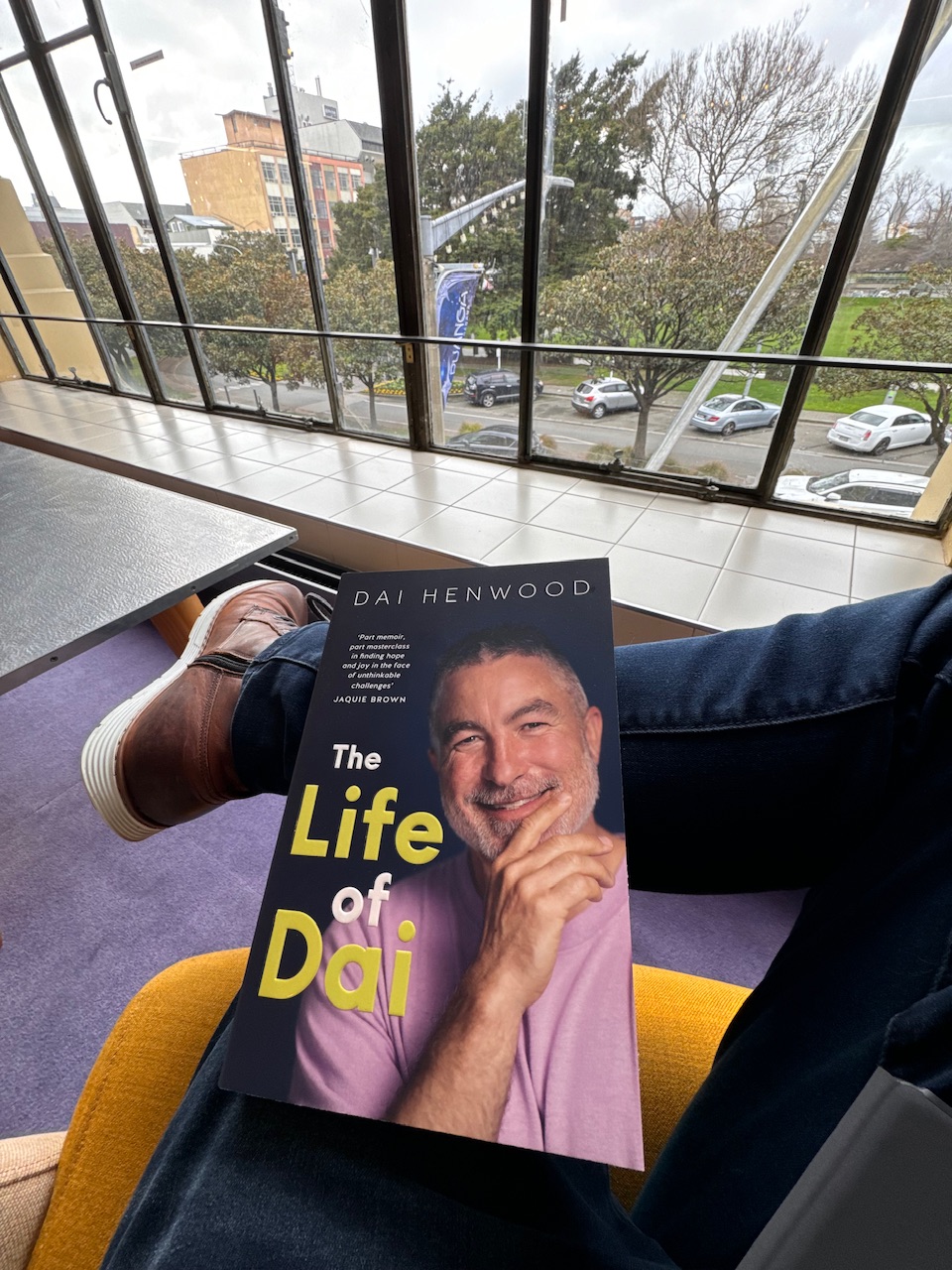I’ve just finished reading “The Life of Dai” and highly recommend it. This book beautifully captures the experience of going through a health crisis and provides insights on supporting someone through one without being bleak. It was a restorative read for me, bringing up a lot of emotions. Although I don’t have cancer, my condition has its parallels.
To be 100% open, when I started reading it, I nearly had a massive ugly cry right there in the local public library. I’m not against crying, of course, but it’s not something I do with ease. Despite my best efforts, there’s something in me that fights it on a very deep level. A good cry has huge benefits for others, and there are times when I’d love the release of a massive sob. But for me, it remains elusive, my emotional white whale.
The hardest part of my situation isn’t the physical pain or the side effects of medication. It’s the mental load. My mind is dealing with so many more mentally taxing things, particularly now out of the hospital and trying to deal with the ramifications of the new me. I now often find myself wondering if a fairly mundane daily situation (like trying a new kitchen appliance, using my work backpack that has magnetic clasps, or even deciding what sorts of foods are best for my health) is putting my life at risk. It’s mentally crippling if I don’t allow for it.
The Numb Phase and Emotional Overload
During the initial phase of dealing with my condition, I felt a sort of numbness. There’s a fight-or-flight response that kicks in, and my feelings just blank out. Everything becomes very practical. My more reasoned side takes over, saying, “Step aside, feelings. This is a job for logic”. Then, with a bit of distance from the initial shock, that mechanism wanes and all those feelings come rushing back. It’s overwhelming. At some point, “healing happens by feeling”, but that’s little comfort in the moment.
Fear, Uncertainty, and Doubt
I remember the first time I felt fear in the hospital. That day, I’d been allowed to get out of bed for the first time and take a shower. Boy, did I need that shower. Despite the awkwardness of trying to wash while keeping the heart monitor dry, it felt nice to get clean. That night, as I was drifting off to sleep, a thought hit me: “If I don’t wake up in the morning, that will deeply harm the kids”. It was a dramatic thought, but my heart rate had been so low that it was a real possibility until I had surgery.
This realisation brought guilt. I felt like I was inflicting pain on the people who matter most to me. I was causing distress and couldn’t help them if I was dead. My practical mind tried to rationalise, reminding me the leads attached to me would alert staff if my heart stopped. But rationalisation only goes so far in soothing such a profound worry. I didn’t sleep well that night.
Preparing for the Worst
The next day, I thought about how I could influence how my kids would cope if I were to die. Life insurance would take care of financial worries, but what about emotional support? How could I ensure they felt stable and safe even if I wasn’t there? I pondered how much information to give them, worrying about overloading or under-informing them.
Questions and Reflections
During these moments of fear and uncertainty, I found myself questioning everything. What am I doing with my life? Why do I sit at a computer all day? Why do I put myself last? Have I just been in Dr. Seuss’s “waiting place” all this time? What would fill me with joy? Can I make meaningful changes? Am I brave enough?
I also wondered about my relationships. Am I a good husband? Father? Son? Brother? Friend? How do I talk to people without freaking them out? Why are some people helpful while others are missing in action? Have I let people down in the past? Am I selfish for thinking this? Have I created barriers?
It was, and continues to be, a whirlwind of emotions and questions. It wasn’t just about managing physical symptoms but also dealing with the mental and emotional load. Books like “The Life of Dai” help mainly by putting a mirror to my own experiences, showing me that all of this is “normal” and I’m not alone in these struggles. Ultimately, feeling my emotions is a crucial part of healing, even if it’s the hard part and I’m crap at it.
I can’t claim to be anywhere near reaching the summit, or even basecamp, of emotional wellness. I don’t even know if there is a summit; but I continue to climb.

Leave a Reply